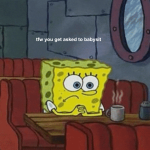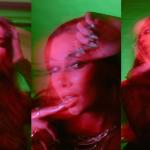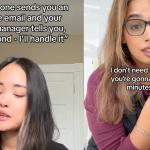
I was born soon after my family arrived in Melbourne from Rome, which was a little strange. Your first introduction to language and culture in those first few years of life comes predominantly from your immediate family, and so, the first language I learned was Italian. The television at home was in Italian, thanks to the magic of expensive ’90s cable. The books were Italian, the music was Italian. You get the point.
All my life I’ve felt like I’ve been on the fence between two cultures. My earliest memory of being in a school environment was pointing to the sandpit to a teacher because I wasn’t sure how to say it in English — but I knew I wanted to be all up in that sand. I don’t know a lot of classic Australian cultural stuff that my friends seem to bond over. I’ve never seen The Castle, or Kath & Kim. I don’t know any John Farnham or Daryl Braithwaite songs, except the one about horses. They’re cultural blind spots I’ve come to accept.
I am, however, all too familiar with Pavarotti, Eros Ramazzotti, and Un Posto Al Sole— basically the Italian equivalent of Neighbours. It’s really great, and it’s been running for decades. Highly recommend.
My point with all this is that when I got to uni, seeing people like Marc Fennell on the screen inspired me. Australia has a complex relationship with race, and Marc isn’t a ‘white kid’ — but he made it happen. He’s such a great communicator, one of the best in the business, and this is why I was so excited to speak to him ahead of the release of Framed — Marc’s latest project.
Framed tells the story of Australia’s greatest ever unsolved art crime — when one of the most expensive paintings in the country disappeared without a trace. It’s a thrilling tale with twists and turns that could come out of any Hollywood blockbuster, but it happened for real, right here in ‘80s Australia.
But it’s about so much more than that. Framed is about art — what ‘art’ actually means, and in turn, how art shapes identity, and how identity shapes art.
PTV: Hey Marc, I see we share the same birthday, June 2 — always nice to chat to a fellow Gemini, I feel like we get an unfair bad rap. Do you believe in star signs and all that stuff?
Marc: No, I don’t understand it. I feel like I would be down with it if I understood it, but I don’t. If you could tell me what it means to be a Gemini, I will decide whether it attunes with me.
I think people refer to us as two-faced, but I feel like we are just confused.
No, that tracks. I am an asshole, it’s true [laughs].
Likewise. Now let’s get onto the serious stuff — art. The word itself is so broad, so subjective. It can mean so many things to so many different people. How would you define art?
Hmm. I am of the view that art is an expression. It’s that act of taking something inside you and trying to get it out in the world. And what that is can be anything. It can be performance. It can be a documentary film, anything.
Has your definition of art changed since you worked on Framed?
Yes. For sure. The interesting thing is there are a number of people that maintain that the act of stealing was itself an art, because by stealing the art, they created a huge conversation around what is art. Does it matter? Whose art matters? Who’s paying for it? And there are people who are in film today who are like, this is the greatest piece of performance art Australia has ever seen.
It’s completely changed how I see art as it’s a sort of a lightning rod that connects you back to human beings. And it’s the human beings where the emotional impact is.
There is definitely an art to getting in front of the camera and being a professional communicator, especially someone who does it as well as you do. Do you consider yourself an artist?
Oh God, it’s such a loaded term to consider yourself an artist. Isn’t it? It feels really presumptuous — and I definitely am a wanker, but to own it as a term feels like a whole other step. Look, if you make something in this world, I personally regard you as an artist. When you turn this conversation into an article, that’s your art, your art comes to bear on that. You will decide which things you want to include, which things you don’t, which things you thought were interesting. All of that will start to flow out on the page.
For me, I view myself primarily as a journalist. And that carries with it different sorts of expectations. And so, I’m interested in being fair and laying out facts. But I’m also really interested in human impacts. So, there is artistry involved in that, creative choices about what you include. But I think for me personally, in my sort of super broad definition of art from earlier, sure. But if I was to get on a plane now and write the thing, I’d say journalist.
Do you ever feel like you’ve ever had to compromise your artistic self in order to progress your career self?
Hmm. That’s a good question. I’ve got to think about that. It’s funny, in most parts of our lives, we regard compromising as a good thing, except when it gets invoked in the context of art. When we talk about people compromising artistic choices, it’s seen as sort of a negative, like you sold out.
But in every other part of our life, like problem solving or working with teams or working with conflict, compromise is considered a higher ideal. I think for me, compromising is about picking your battles and about working out which things are worth investing your time and energy into.
Let’s talk a bit about personal identity — I grew up in an Italian family, at home I speak Italian, but at work and with friends I speak English. So many Australians are in this kind of cultural limbo, caught between cultures — can you relate?
I’m weird. I was raised in Australia, but I’m half Indian, half Irish. The Indian side is from Singapore, born in Australia. I was never taught Hindi, like I only know how to swear in Hindi. I was raised in an environment where other people had really deep connections to their culture, can speak the language, and I never got any of it. So if I’m being honest with you, I’m actually jealous of you because I think that’s something that you have that is a gift.
And I know growing up, some kids didn’t always view it that way. And that’s fine. But for me, one of the reasons why I do so much stuff around race and identity is because I’m genuinely curious because I didn’t get it growing up. I knew I was different. I knew people would hurl sort of misguided racial abuse, not knowing where I was actually from. I know every cab driver I’ve ever spoken to on every continent has always said to me, where are you really from?
But the thing for me is like, I don’t feel like I fit anywhere. And part of why I’m interested in doing stuff around this is to kind of try and understand how we fit within this world. Australia has such an unusual history with race. Obviously we have our First Nations history. We have wave upon wave of white migration and different migration from Asia and they all happened at different times. So there’s different levels of integration in the broader fabric of Australia. And that means the story of race in Australia is really complex and really interesting.
That’s really beautiful, and I can relate to that sense of not being sure where you fit in. I found growing up, as a child, I was very proud of being Italian. And then as a teenager, I completely rejected it. I wanted to be Aussie. And then now I’ve found that only in the last few years, I’ve gone back to fully embracing that vowel at the end of my surname.
Very similar to you, as a teenager, I was like, no, for all intents and purposes, I am white. Please treat me as one of the white kids. And now I’m realising that there is this whole really fascinating history to how my parents ended up in this country, both the Irish side and the Indian side. It’s all really complicated and messy and it’s big and it’s epic. And now a huge part of why I do a lot of this stuff now is I’m just genuinely trying to understand how I ended up, and you ended up, with the world that we have today.
Why should audiences tune into Framed?
It is the strangest, funniest, saddest Australian heist I’ve ever covered. It is an unbelievably weird chapter in our history. It’s somehow both funny and odd. And at the same time, it’s kind of devastating and heartbreaking. And if we don’t tell these stories, they disappear.
Americans and British people, they’re so good at memorialising every little inch of their history, but we don’t do it in Australia. It’s just such a fascinating chapter in the history of our land. And it tells you so much about the power of rumours and how rumours can really change people’s lives, for worse generally speaking. I’m hoping that people just come on that rollercoaster. Because it’s an absolute bonkers ride.
Stream the complete four-part docuseries ‘Framed’ on SBS On Demand from Sunday 26 December. Framed will also be available with subtitles in Simplified Chinese and Arabic.



